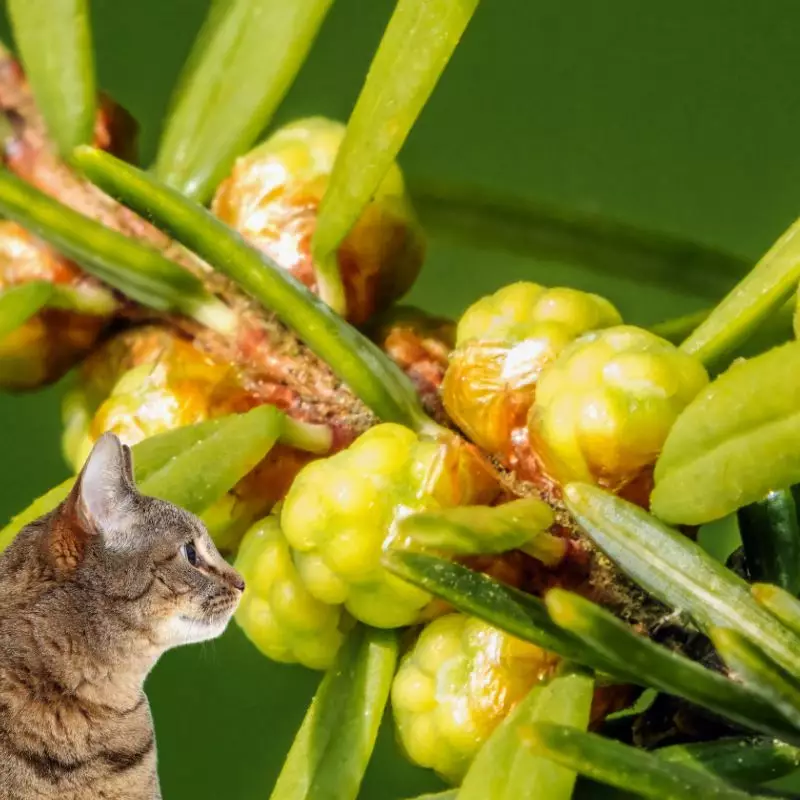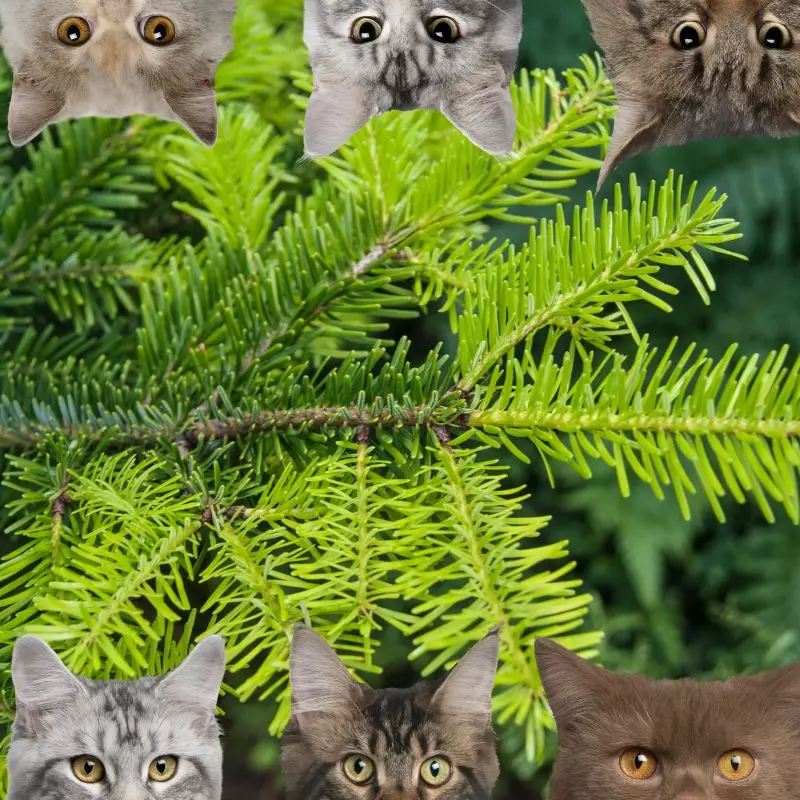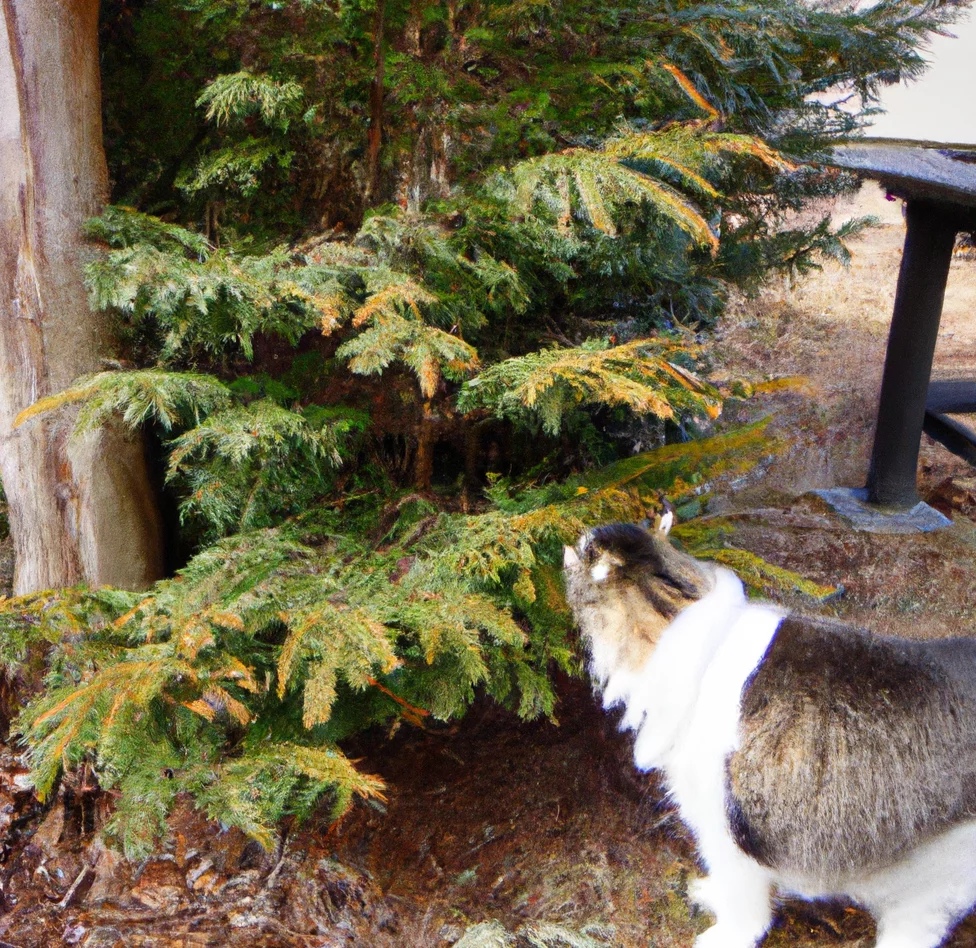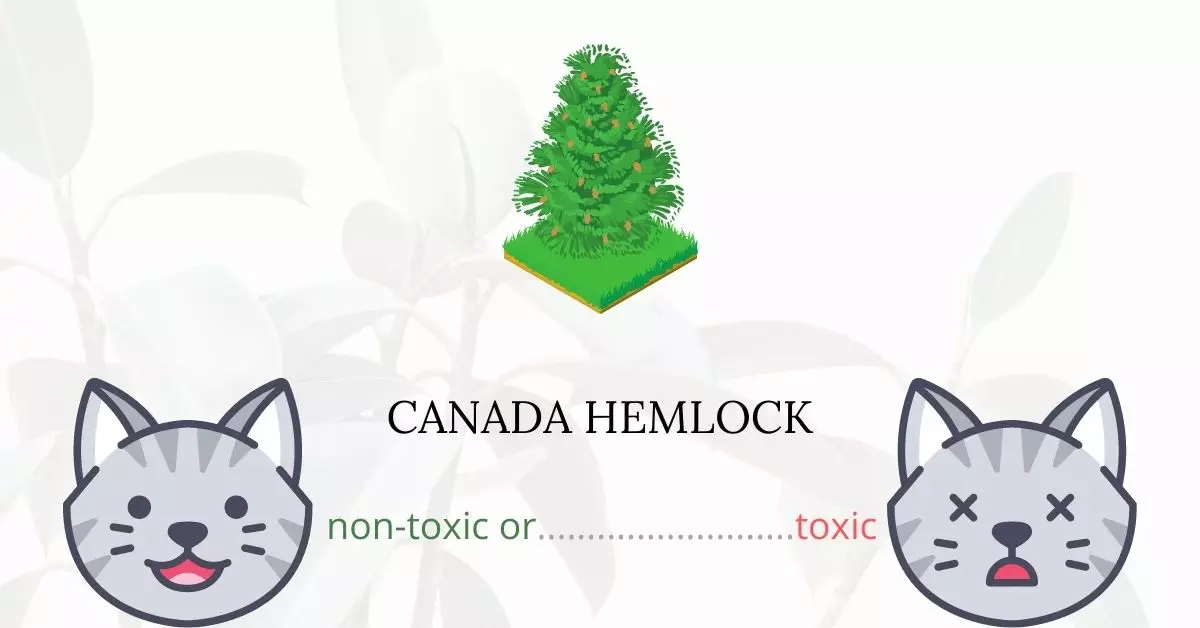Canada Hemlock is not toxic for cats.
To ensure the utmost accuracy and relevancy, this article was penned in close collaboration with a team of experienced DVMs (doctors of veterinary medicine). Their invaluable insights, combined with our thorough research from high-authority sources such as the ASPCA and PetMD, underscore our commitment to providing accurate and up-to-date information regarding the potential risks of various plants, Canada Hemlock in this instance, and their effects on cats.
It’s worth noting that Canada hemlock is not only non-toxic to cats but, according to the American Society for the Prevention of Cruelty to Animals (ASPCA), it is also safe for dogs and horses. Often found in woodlands, Canada hemlock is also a popular choice as an ornamental tree. For cat owners contemplating adding this tree to their landscapes, there’s peace of mind in knowing it’s a safe choice. Nonetheless, general safety measures should always be observed to ensure your feline companions remain out of harm’s way.
Can Cats Eat Canada Hemlock?

It is safe for cats to eat a small portion of any part of the Canada hemlock. However, always keep in mind that ingesting a huge quantity of plants may cause cats to have indigestion.
Felines do not have enough enzymes to completely process plant materials in their stomach. Thus, consuming too many plants (of any kind) may develop symptoms of mild vomiting and diarrhea. You should not worry too much though since these symptoms will most likely go away once they have ejected the plant matter from their system.
But in any chance that your cats show recurring vomiting and diarrhea, you should visit your veterinarian for proper diagnosis.
What is Canada Hemlock?

Other common names for Canada hemlock are Eastern hemlock and Eastern hemlock-spruce. The Canada hemlock is a species of conifer endemic to eastern North America. It is Pennsylvania’s state tree. Canada hemlocks may be found all across the Great Lakes area, the Appalachian Mountains, the Northeastern United States, and Maritime Canada. They are also cultivated in the United Kingdom and continental Europe as ornamental trees.
The Canada hemlock thrives in shade and has a long lifespan, with the oldest reported specimen being at least 554 years old. The tree typically grows to heights of around 31 meters, however, exceptional specimens have grown to heights of up to 53 meters.
Canada hemlock timber is often used for general construction and containers. It is also utilized for railroad ties due to its exceptional ability to hold spikes. If left untreated, the wood will rot when exposed to the weather. Its wood is also used in the production of paper pulp. Canada hemlock has a poor value as a fuel.
Keeping Cats Away From Canada Hemlock

Boredom is likely one of the reasons your cat is disturbing your plants. When your cat has nothing better to do, playing with a nearby houseplant may appear to be a viable option. To minimize boredom and trouble, you should constantly keep your feline stimulated. Keeping your cat active can be helpful to you and your plants, too.
You can also discourage them from lurking around your plants by using natural deterrents. Another alternative is using bitter apple or vinegar as a natural deterrent.
Plants to Avoid For Your Cats
If you are a cat owner and unsure if the plants growing in your yard are harmful to your cats, check out this list of toxic plants for cats. You can also check our list of non-toxic plants for cats.





